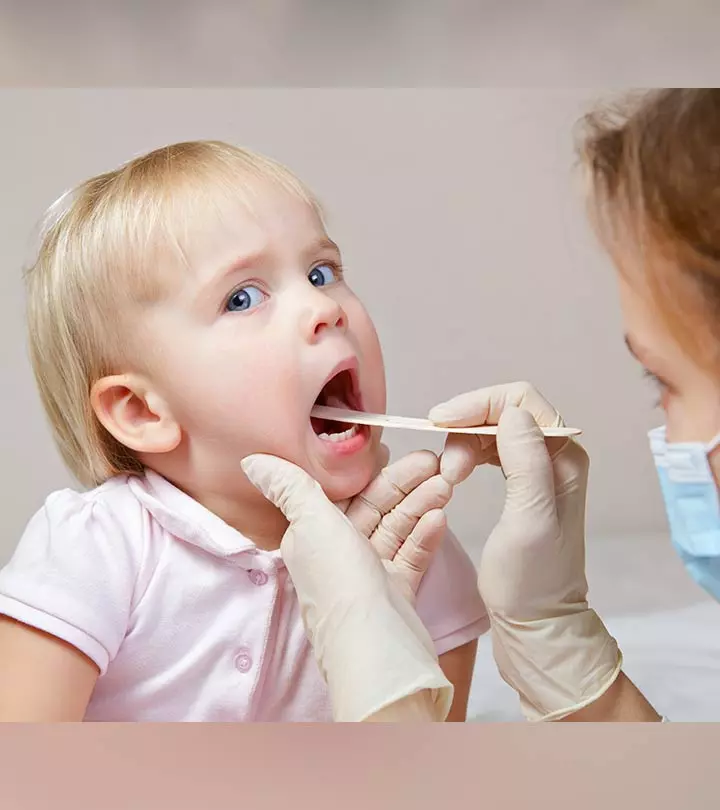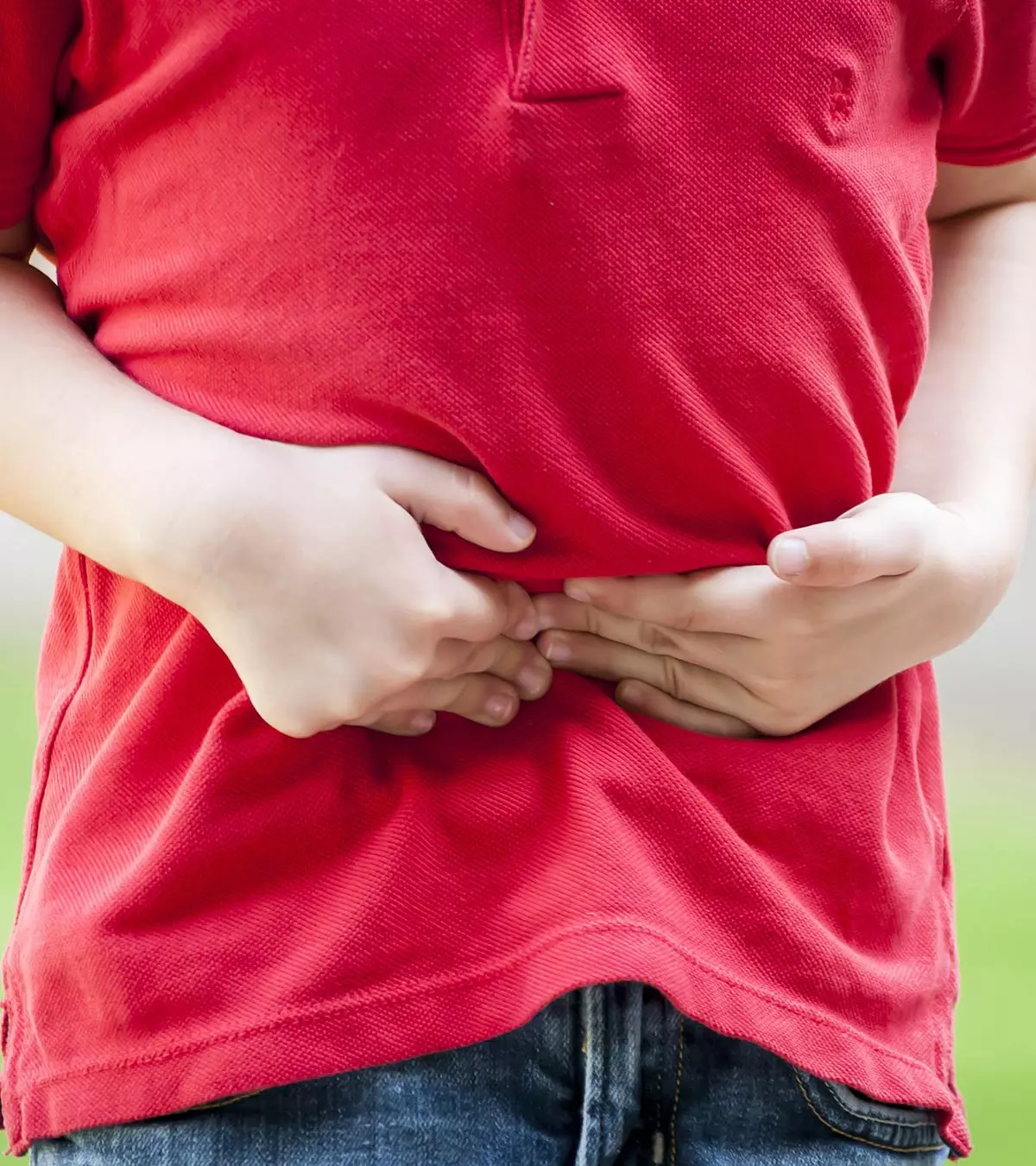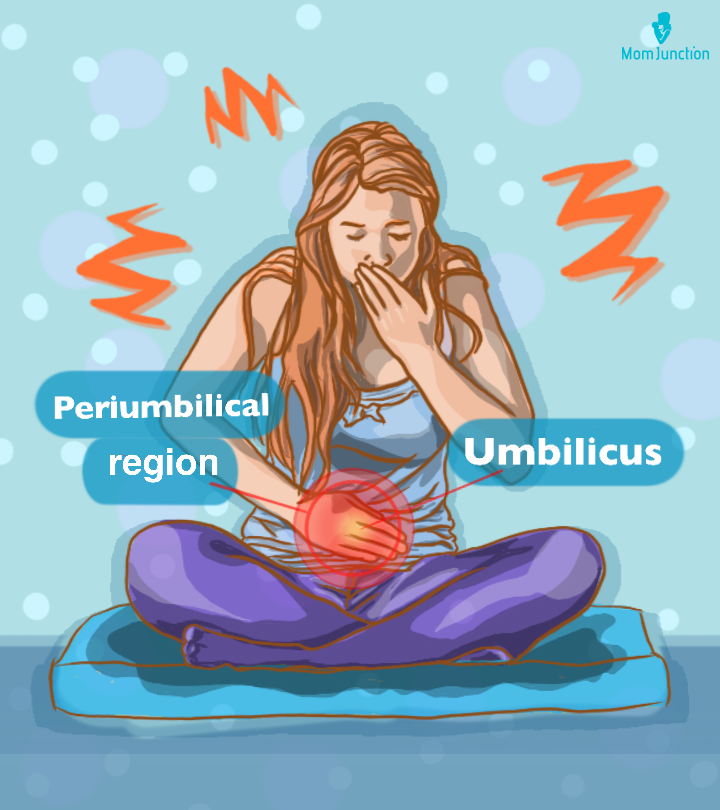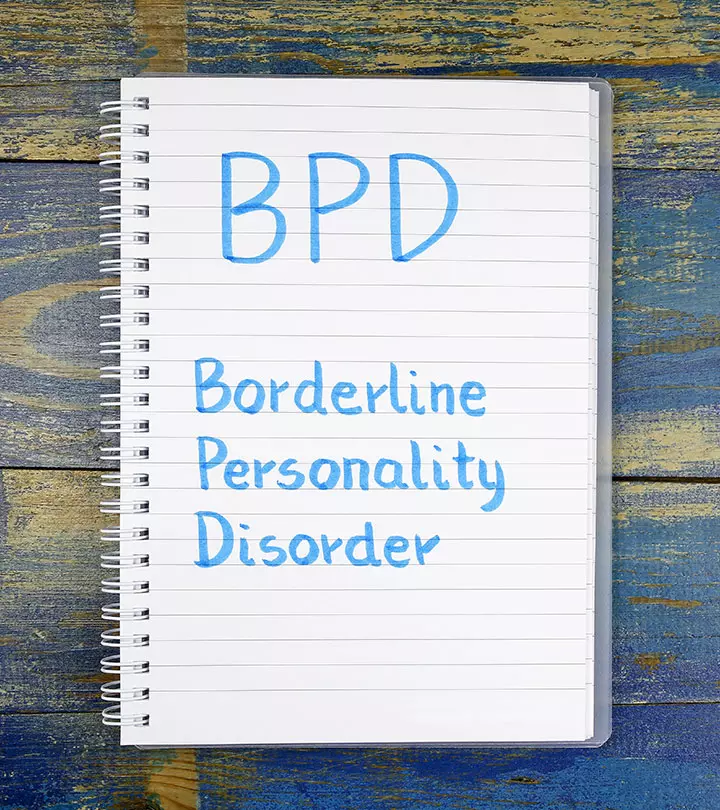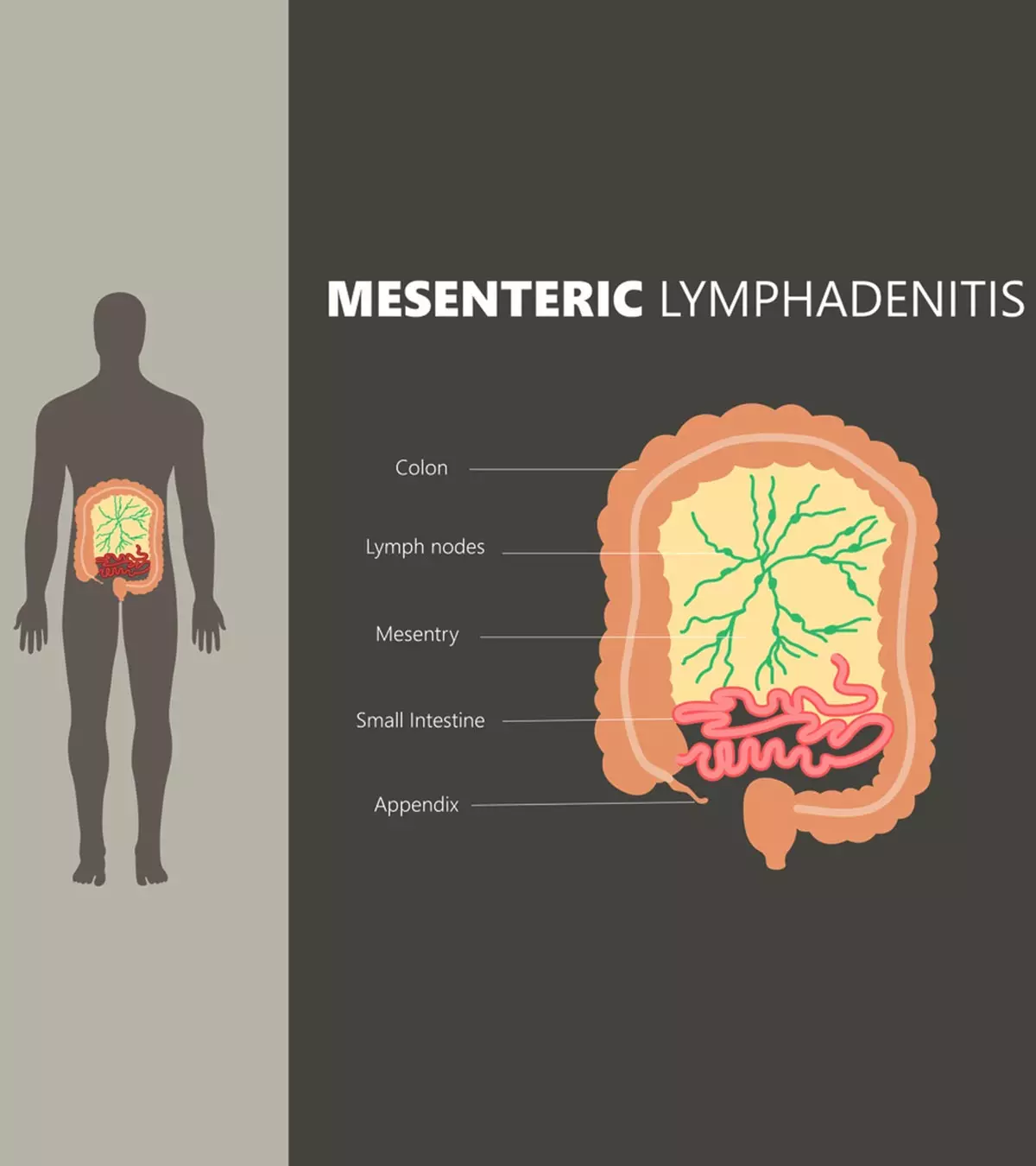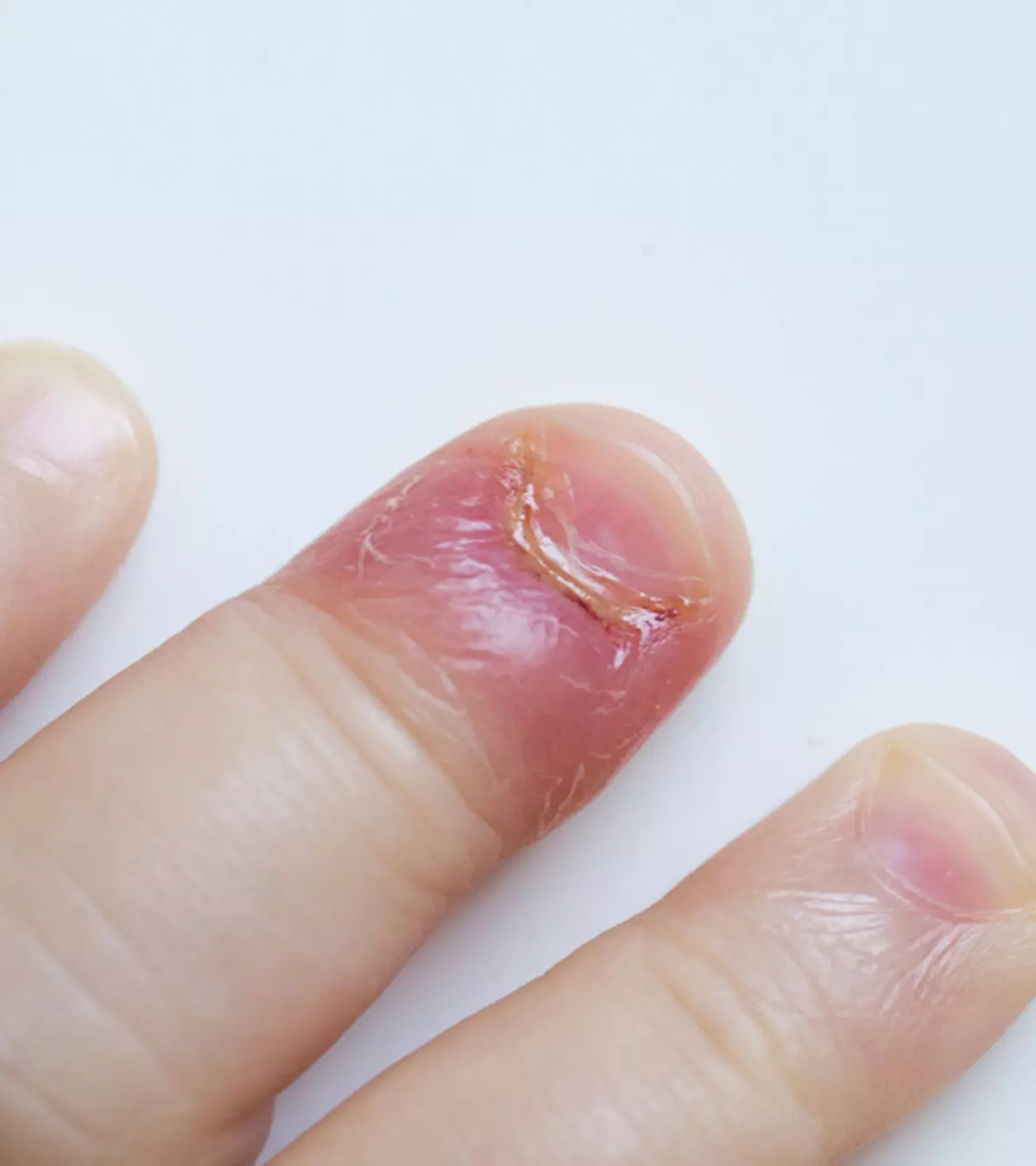
Image: iStock
Gastroenteritis or stomach flu is a bowel or GI tract infection that causes inflammation in the stomach and intestines and is accompanied by diarrhea, nausea, and vomiting (1).
In the US, acute gastroenteritis in children accounts for 200,000 hospitalizations and 300 deaths in children every year (2). However, gastroenteritis infections are not usually severe, and the symptoms last for around two days. It usually takes around seven days for the infection to subside completely. Children can recover at home by drinking plenty of fluids and taking adequate rest (3) (4) (5).
Read about the causes, symptoms, risks, diagnosis, treatment, and prevention of gastroenteritis in children.
Key Pointers
- If your child complains of persistent diarrhea, abdominal pain, and vomiting, these could be the signs of stomach flu.
- The causes of this condition might be an infection, contaminated food, or water ingestion.
- Your child’s doctor may advise treatment, which might include medications, diet management, and home remedies.
- To prevent this condition, make sure you maintain cleanliness at home, avoid outside foods, and encourage frequent handwashing in children.
What Are The Causes Of Gastroenteritis In Children?
The causes of gastroenteritis in children are (4):
- Viral infection: Most viral gastroenteritis is caused by rotavirusi Virus that causes diarrhea, vomiting, and dehydration in children , adenovirusiViruses that cause mild to severe respiratory and intestinal illness , or norovirusiA contagious virus that causes diarrhea and vomiting and is also known as the ‘winter bug’ (5). In the UK, every child below five years gets a rotavirus infection. Adenovirus and rotavirus infections are more common in infants and children than in teenagers. Norovirus mostly infects older children and adults (6).
 Quick fact
Quick fact- Bacterial infection: Bacterial species such as CampylobacteriBacteria that can cause bloody diarrhea, fever, and stomach cramps , SalmonellaiBacteria that cause infection characterized by fever, abdominal pain, diarrhea, nausea, and sometimes vomiting , and Escherichia produce toxins that may cause acute gastroenteritis.
- Parasitic infection: Parasites live on or inside another organism, causing parasitic infection, which may also cause acute gastroenteritis.
- Water contamination: Gastroenteritis may also occur if bacteria or other microbes contaminate the water. This usually occurs in countries with poor sanitation.
The germs causing gastroenteritis may spread easily if children (3)
- Eat food after touching a contaminated object
- Share eatables with a sick person
- Live with an infected person
 Quick fact
Quick factWhat Are The Symptoms Of Gastroenteritis In Children?
The most common symptoms of gastroenteritis are (7):
- Diarrhea or stomach upset that lasts for two to four or several days (loose and watery stools at least thrice in 24 hours or more than the usual stool frequency of that person)
- Vomiting

Image: Shutterstock
- Abdominal pain
In addition, children may also experience (6) (8)
- Bloating
- Loss of appetite
- Nausea
- Abdominal cramps
- Stomach cramps or stomach ache
- Bloody stools (in some children)
- Mucus in stools (in some children)
- Body aches
- Excessive drowsiness
- Decreased activity
- Headache
- Fever, cough, and sore throat
 Things to know
Things to knowWhat Are The Risk Factors And Complications Of Gastroenteritis?
The factors that increase the risk of gastroenteritis in children are (5) (6) (9):
- Weak immunity (primary immunodeficiency disorders, immunosuppressive drugs, HIV infection)
- Young age (occurs more commonly in infants and young children)
- An underlying disease
Although gastroenteritis complications are uncommon in children, they may occur in those with chronic conditions, such as diabetes.
Some complications are (4) (10):
- Dehydration: Children below six months are at greater risk of getting dehydrated and require close monitoring. They should wet at least half the usual number of nappies or pass urine at least once in six hours. It’s better to avoid diapers in a child with diarrhea, as it is very difficult to differentiate between loose, watery stools and urine. Hence, the child may go into severe dehydration and shock unnoticed.
Cool or grayish skin and drowsiness may be a sign of dehydration. Children with some dehydration will be irritable most of the time, have dry mouths and lips, and be very thirsty. Children with severe dehydration will be drowsy, lethargic, unable to drink, and have cold, clammy hands and feet.
For older children, examine the urine color and keep a count of the number of times they urinate. If children are dehydrated, they may feel dizzy, pass dark urine, and experience dry lips and mouth.
Moreover, fluid and electrolytes are also lost through stool and vomiting, leading to an imbalance in the body. Therefore, it is important to replenish the loss by drinking plenty of fluids.
- Reactive complications: In rare cases, the intestinal infection may cause joint inflammation (arthritis), eye inflammation (conjunctivitis), or skin inflammation.
- In rare cases, gastroenteritis infection may spread to joints, bones, meningesi Membranes that cover and protect the brain and spinal cord (membranes protecting the brain and spinal cord), and heart valves. This may occur in Salmonella Infection, which, according to a report by WHO, is one of the four key global causes of diarrheal diseases.
- Lactose intolerance: This condition may occur in children for some time after gastroenteritis infection. It occurs because the gut lining gets damaged and cannot produce enough lactase to digest the lactose present in the milk. The condition improves once the gut lining heals.
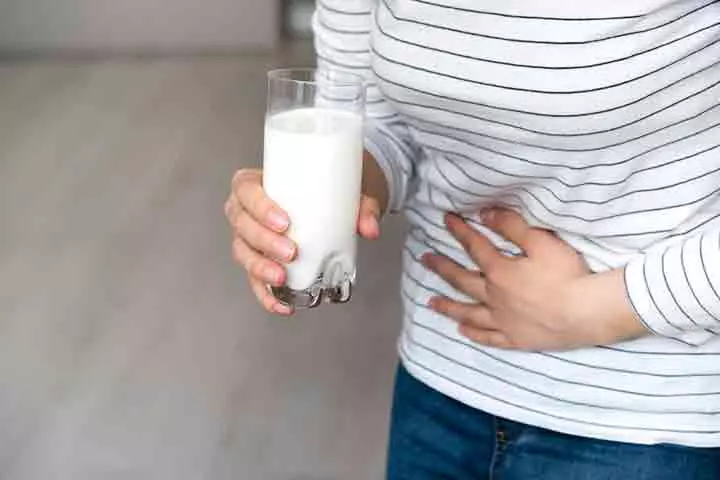
Image: Shutterstock
- Hemolytic uremic syndrome: In rare cases, gastroenteritis caused by E.coliiA bacteria that lives in the intestines of people and animals, some types of which can cause illness infection may lead to anemia, low platelet count, and kidney failure. It is a life-threatening condition with high mortality. Hence early detection is important.
- Gastroenteritis may also lead to malabsorptioniDifficulty in digesting and absorbing nutrients from the food and malnutrition in some children.
- Other complications are persistent diarrhea syndromes (three or more stools per day continuously for more than 14 days). Irritable bowel syndrome (a large intestine disorder causing cramps, abdominal pain, constipation, and other symptoms) can present with either constipation or diarrhea in children.
When To See The Doctor?
You should contact your healthcare provider immediately if your child has (7) (8) (11):
- Fever

Image: Shutterstock
- Seizure
- Continuous vomiting and diarrhea and inability to tolerate oral fluids
- Blood in vomiting
- Bile in vomiting
- Bloody diarrhea
- Severe abdominal pain
- Signs of severe dehydration such as lethargy, drowsiness, unable to drink, lack of tears, sunken eyes, and for infants, sunken soft spot on top of the head
How Is Gastroenteritis Diagnosed?
The typical symptoms of gastroenteritis make it easily recognizable. However, if you consult the pediatrician, they may examine the temperature, pulse rate, tenderness in the tummy, and signs of dehydration (4).
No tests are performed unless children (4)
- Have bloody stools
- Have food poisoning
- Are admitted to hospital
- Are not getting better
How Is Gastroenteritis Treated?
Some important considerations about gastroenteritis treatment are (3):
- Mild cases of gastroenteritis do not need any treatment and subside by themselves. Oral hydration and ORS can be given in proper dilution to compensate for the fluid loss.
- Zinc supplementation in proper dose is given to children with acute watery diarrhea as it compensates for the loss and reduces the severity and duration of diarrhea (12).
- Do not give any medication to children without the doctor’s advice. If your child has a fever, give acetaminophen (4).
- Probiotics may be used in acute watery diarrhea only, as prescribed by your doctor (13).

Image: Shutterstock
- Racecadotril is a prescription medication for severe watery diarrhea because it helps reduce fluid loss through stools. It may be given to children above three months only if advised by your doctor (4).
- Antibiotic treatment is not required for viral gastroenteritis (9). However, antibiotics will be required for cholera or bloody stools due to bacillary dysentery. Antibiotics should never be used unless prescribed by your doctor.
What Are The Home Remedies For Gastroenteritis In Children?
Here are some tips you may follow to treat gastroenteritis at home (3)
- Allow children to take adequate rest.
- Prevent dehydration in children by giving them plenty of water and oral rehydration therapy. ORS is the mainstay of diarrhea treatment as it prevents and corrects dehydration.
- Don’t give sugary drinks or fruit juices as they might worsen diarrhea. Also, carbonated drinks should be avoided.
- When your child starts eating again, give them a regular diet. This will help reduce the symptoms of infection faster. If they can’t eat a full meal, give them small portions of food at more frequent intervals. Add oil, butter, or ghee to make the food energy-dense.
- Some foods you may include in your child’s diet are cereals, bread, yogurt, potatoes, bananas, apple juice, and vegetables (7).
- Ask your healthcare provider about the foods to avoid giving children. Avoid junk foods, such as chips, cakes, chocolates, ice cream, and cream (9).
- If your baby is breastfeeding, feed them more frequently. Give them oral rehydration salts if they urinate less or pass dark urine.
- The decision to give cow milk to a child with diarrhea should be individualized. This should be decided by the treating physician. It is because cow milk intake can aggravate secondary lactose intolerance in children with watery diarrhea (14).
- Avoid sending your children to schools, childcare centers, or swimming pools.
How To Prevent Gastroenteritis In Children?
The following steps may help prevent the spread of infection in children (9):
- Encourage them to wash their hands thoroughly before handling food and after using the toilet.

Image: Shutterstock
- Ensure the bathrooms and toilets are regularly cleaned.
- Wash their clothes with hot water separately.
- Advise them not to share their food and drink with anyone.
- Keep the kitchen area clean.
- Get your infants vaccinated against rotavirus.
- Use a disinfectant to clean tables, doorknobs, and other surfaces that may be easily touched by children (3).
 Quick fact
Quick factMild gastroenteritis in children is not a cause for concern and clears out in a few days. However, in case of a severe infection, consult a doctor if you see any worrying symptoms, such as seizures, bloody diarrhea, and vomiting in children. Allow children to rest well and drink plenty of fluids. Also, teach them good hygienic habits to help prevent the risk of infection.
Frequently Asked Questions
1. How long is gastroenteritis contagious in kids?
A child can stay contagious from when the symptoms appear to several days or weeks after recovery. Technically, how long a child will stay contagious depends on the pathogen that has infected the child. For instance, most children infected with rotavirus stay contagious for around 12 days, whereas norovirus can be present in stool for up to two weeks after the symptoms stop (15) (16).
2. Is yogurt good for gastroenteritis in kids?
Since yogurt contains beneficial microorganisms, it is believed that consuming yogurt can help improve gastroenteritis. However, research suggests that yogurt intake can’t help treat or manage gastroenteritis (17). But, it may help prevent gastrointestinal problems from occurring (18).
3. Can gastroenteritis cause long-term health problems in children?
One potential long-term consequence of gastroenteritis is a type of irritable bowel syndrome (IBS) called post-infectious IBS. If a bacterial infection causes it, it may take a few years to resolve, but if the gastroenteritis is caused due to viral infections in children, the symptoms go away in a few months without any adverse effects. Other rare complications of gastroenteritis include reactive arthritis and ulcerative colitis (20).
Infographic: How To Manage Gastroenteritis In Children At Home?
Gastroenteritis, or stomach flu, can cause diarrhea, vomiting, abdominal pain, cramps, fever, nausea, and other symptoms in children. While taking your child to a physician is necessary, you should also take proper care of your child at home for a faster recovery. Check out the infographic below for practical tips on managing gastroenteritis at home.

Illustration: Momjunction Design Team
Illustration: Gastroenteritis In Children: Symptoms Causes And Treatment

Image: Dall·E/MomJunction Design Team
Gastroenteritis and its symptoms can be a very uncomfortable experience for kids. Learn more about the signs and coping strategies to help your child.
References
- Gastroenteritis In Children.
https://www.health.harvard.edu/a_to_z/gastroenteritis-in-children-a-to-z - Scott Hartman et al.; (2019); Gastroenteritis in Children.
https://pubmed.ncbi.nlm.nih.gov/30702253/ - Gastroenteritis (Stomach Flu).
https://kidshealth.org/en/parents/gastroenteritis.html - Gastroenteritis in Children.
https://patient.info/childrens-health/acute-diarrhoea-in-children/gastroenteritis-in-children - Elizabeth Jane Elliott; (2007); Acute gastroenteritis in children.
https://www.ncbi.nlm.nih.gov/pmc/articles/PMC1764079/ - Viral gastroenteritis (stomach flu).
https://www.aboutkidshealth.ca/stomachflu - Gastroenteritis.
https://www.cincinnatichildrens.org/health/g/gastroenteritis - Gastroenteritis in children.
https://www.betterhealth.vic.gov.au/health/conditionsandtreatments/gastroenteritis-in-children - Gastroenteritis In Children.
https://www.kidshealth.org.nz/gastroenteritis-in-children - Gastroenteritis.
https://www.childrens.health.qld.gov.au/health-a-to-z/gastroenteritis - Benign Convulsions with Mild Gastroenteritis
https://www.annchildneurol.org/upload/pdf/acn-2019-00248.pdf - Chaitali Bajait and Vijay Thawani; (2011); Role of zinc in pediatric diarrhea
https://www.ncbi.nlm.nih.gov/pmc/articles/PMC3113371/#:~:text=Recommended%20dose%20of%20zinc%20indaily%20for%2010%20%2D%2014%20days - Probiotics for Children with Gastroenteritis
https://www.nejm.org/doi/full/10.1056/NEJMe1814089 - Lactose intolerance
https://www.mkuh.nhs.uk/patient-information-leaflet/lactose-intolerance - Rotavirus
https://my.clevelandclinic.org/health/diseases/8275-rotavirus - Norovirus.
https://my.clevelandclinic.org/health/diseases/17703-norovirus - Patro-Golab B et al.; (2014); Yogurt for treating acute gastroenteritis in children: systematic review and meta-analysis.
https://www.ncbi.nlm.nih.gov/books/NBK292910/ - Mari Nakamura et al.; (2019); Infant dietary intake of yogurt and cheese and gastroenteritis at 1 year of age: The Japan Environment and Children’s Study.
https://www.ncbi.nlm.nih.gov/pmc/articles/PMC6779294/ - Gastroenteritis in Children
https://www.msdmanuals.com/home/children-s-health-issues/gastrointestinal-disorders-in-children/gastroenteritis-in-children/?ruleredirectid=743autoredirectid=22732 - Gastroenteritis (Stomach Flu).
https://badgut.org/information-centre/a-z-digestive-topics/gastroenteritis/
Community Experiences
Join the conversation and become a part of our nurturing community! Share your stories, experiences, and insights to connect with fellow parents.
Read full bio of Dr. Shaon Mitra
Read full bio of Pragya Bhargavi
Read full bio of Dr. Ritika Shah
Read full bio of Dr. Joyani Das








